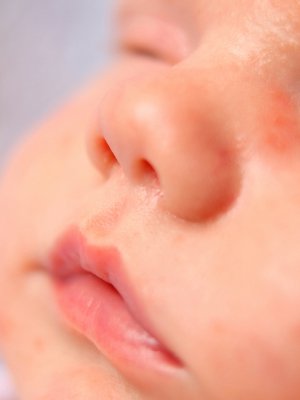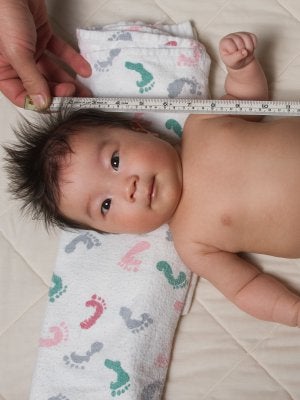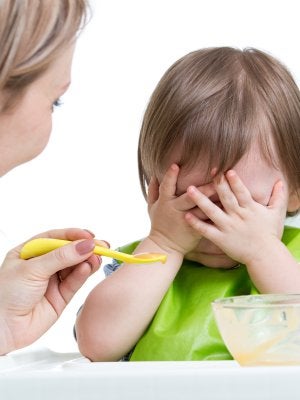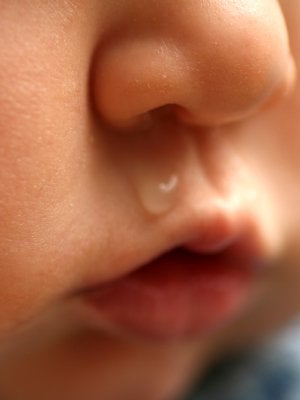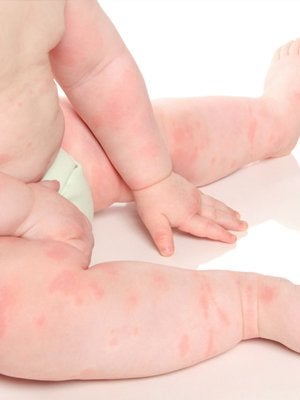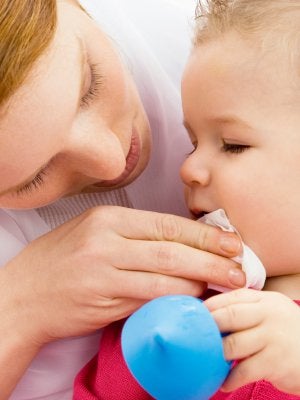
We believe breast milk is the best food for infants. When in consultation with their healthcare professional, mothers and families find that optimal breastfeeding is not possible due to their infant’s medical condition, formulas for special medical purposes play a vital role in providing essential nutrients to infants. We have a global commitment to market breast-milk substitutes responsibly.
This website is about the management of cows’ milk protein allergy and nutritional solutions intended for infants. By continuing on this website, you accept that Nestlé Health Science supplies the information at your own request.
Are you a healthcare professional (HCP) or a parent?
VOMITING
Vomiting is described as the involuntary forceful muscular expulsion of gastric contents.1 It should not be confused with reflux or regurgitation, which are more passive, effortless actions that usually occur before an infant’s oesophagus is fully developed.2
What causes vomiting in infants?- A food allergy, e.g. Cows' Milk Allergy (CMA)3
- A stomach infection, e.g. gastroenteritis, where vomiting is often accompanied by diarrhoea and carries the risk of dehydration4
Other causes include gastro-oesophageal reflux, a reaction to a medicine, intestinal obstruction and metabolic disorders.5
Vomiting as a symptom of Cows' Milk Allergy
Vomiting is a common symptom of CMA.3,6 Clinically, it may present both as an immediate (within minutes)7 or a late (few days to a week) reaction.3 Approximately 50% of infants with CMA present with vomiting as a symptom.8
Signs and symptoms related to CMA
The majority of infants affected with CMA have at least two symptoms affecting at least two different organ systems.9,10
Having an awareness of the most common symptoms of CMA can help you to make an earlier diagnosis of CMA in your patients.
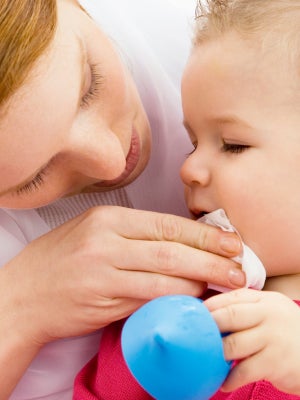
COMISSTM AWARENESS TOOL
The Cows' Milk-related Symptom Score (CoMiSSTM) is a simple, fast and easy-to-use awareness tool designed to help you more easily recognise the signs and symptoms that can be cows' milk-related in infants and young children.

If you suspect your patient is suffering from symptoms that may be suggestive of CMA, use the CoMiSSTM tool to score and assess the likelihood of CMA.
Other Symptoms of Cows' Milk Allergy
References
- Lightdale JR., et al. Pediatrics. 2013;131:e1684–95
- Marseglia L., et al. World J Gastroenterol 2015; 21(28): 8508–15
- Koletzko S., et al. J Pediatr Gastroenterol Nutr. 2012;55(2):221–9
- Guarino A., et al. J Pediatr Gastroenterol Nutr. 2014;59:132–52
- Vomiting in the Pediatric Age Group. http://www.medscape.com/viewarticle/711641_3 (Accessed March 2016
- AM., et al. J Pediatr Gastroenterol Nutr. 2001;32:59-64
- Vandenplas Y., et al. Arch Dis Child. 2007;92:902-08
- Santos A, et al Pediatr Allergy Immunology 2010 ; 21 :1127-34
- Immunol 2010; 21:1127–34.Lifschitz C. and Szajewska H. Eur J Pediatr. 2015;174:141-50
- Høst A. Pediatr Allergy Immunol. 1994;5:1–36
IMPORTANT NOTICE: Mothers should be encouraged to continue breastfeeding even when their babies have cows' milk protein allergy. This usually requires qualified dietary counselling to completely exclude all sources of cows' milk protein from the mothers’ diet. If a decision to use a special formula intended for infants is taken, it is important to follow the instructions on the label. Unboiled water, unboiled bottles or incorrect dilution can make babies ill. Incorrect storage, handling, preparation and feeding can eventually lead to adverse effects on the health of babies. Formula for special medical purposes intended for infants must be used under medical supervision.

